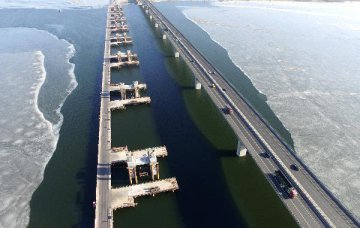
The Chinese government has announced ambitious plans to improve the country's transport infrastructure in the next few years.
The State Council on Tuesday issued a document to expand the transport network during the 13th Five-year Plan period (2016-2020).
By 2020, the country will have 150,000 kilometers of railway lines, 5 million km of roads, 260 airports and 2,527 berths for vessels over 10,000 tonnes. High-speed railways will increase to 30,000 km, connecting more than 80 percent of cities with a population of more than 1 million.
The government aims to build a modern transport system that is safe, convenient, efficient and green by 2020, according to the document.
China has already weaved enormous networks of railroads, expressways and ship routes, which have smoothed its rapid economic expansion during the past decades.
"China tops the world in the length of high-speed railways, expressways and urban rail transit networks, and the number of berths for vessels over 10,000 tonnes," Li Pumin, secretary general of the National Development and Reform Commission (NDRC), told a press conference Wednesday.
"Seven of the world's 10 largest ports in terms of container throughput are located in China," Li added.
The country's transport investment totaled 13.4 trillion yuan (1.95 trillion U.S. dollars) between 2011 and 2015, about 1.6 times that spent from 2006 to 2010. However, China transport infrastructure still cannot satisfy the increasing demand of the nation's economic and social development.
"Infrastructure lags behind in less-prosperous central and western regions, connectivity with bordering countries needs further improvement, transport safety is still in grim situation, and investment and financing mechanisms require continued reforms," Li said.
To fix the weak links, a total of 15 trillion yuan will be channeled into transport infrastructure improvement projects by 2020, including 3.5 trillion yuan for railways, 7.8 trillion yuan for roads and 500 billion yuan for water transport.
The government promised strengthened policy support in land, investment and subsidies for such projects.
"We have scrapped more than 90 percent of administrative approval procedures...and channeled more energy into reforms on financing mechanisms, including eight demonstration projects allowed to use private investment," said Zheng Jian, deputy head of the NDRC's basic industries department.
"More efforts will be made to improve planning and regulation to ensure the implementation of the plan," Zheng said.
The government also expects improved transport systems to help reduce poverty, saying revolutionary bases, impoverished and border areas, and regions inhabited by ethnic groups will see more favorable policies.



















Latest comments